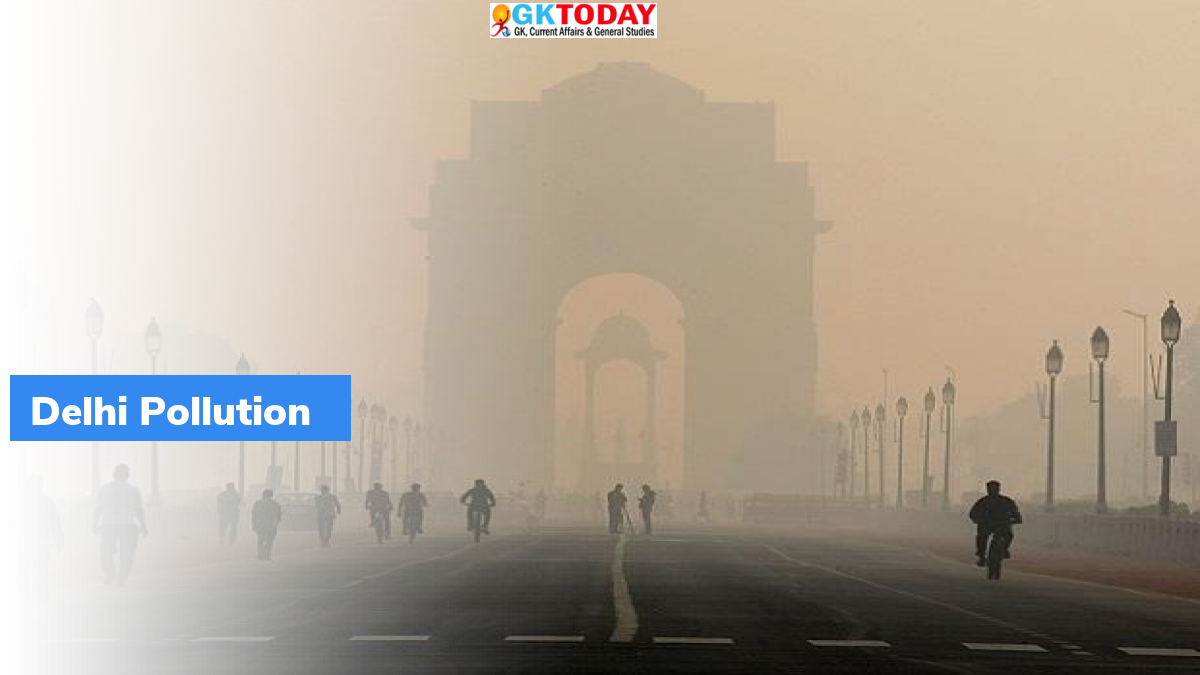Delhi Winter Action Plan
A winter action plan was unveiled by the Delhi Government to combat air pollution.
Key facts
- The 15-point Delhi Winter Action Plan will act as the blueprint for addressing air pollution in the national capital.
- The plan involves collaborating with IIT Kanpur to conduct a study on the amount of pollution and its source during a particular period of time. The source of the pollution can be vehicles, stubble burning and industrial pollution.
- Stubble burning will be reduced through the use of a bio-decomposer developed by PUSA Institute. It has been distributed for free to the farmers, who spray it on the stem of the crop after harvest instead of burning the remains.
- Vehicular inspections will be carried out under the pollution under control (PUC) certificates for diesel vehicles that are more than 10 years old and petrol vehicles that have been in use more than 15 years.
- An anti-dust pollution campaign will be organized from October 6 by the Delhi Government.
- Volunteers registered as Paryavaran Mitra will be involved in raising awareness about environment protection.
- 586 teams have been formed to monitor construction sites in Delhi. Construction sites spanning 5,000 sq m and above are mandated to be registered in Delhi government portal so that dust pollution from that site can be controlled in timely manner. They are also required to install anti-smog guns.
- Pollution from roads are being reduced using road-sweeping machines and creating alternate routes for high-traffic roads.
- The plan also includes the complete ban on bursting of firecrackers as well as the production, storage, distribution and sales of the crackers.
- All registered industrial units are required to stop using pollution-causing fuels and instead shift to PNG (piped natural gas).
- An e-waste park will be set up in Holambi Kalan to ensure the scientific disposal of e-wastes.
- The government is planning to expand green canopy by planting 42 lakh saplings across Delhi. 33 lakh saplings have already been planted in the first phase. The rest of the saplings will be covered under the second phase, which will commence from October 15.
- A Green War Room will start operations from October 3. It will have 9 scientific experts involved in the analysis of pollution data and development of future path towards reducing pollution in Delhi.
- 13 hotspots of pollution identified by the Delhi Government will be strictly monitored and various measures will be taken to keep pollution under control.
- The modified version of the Graded Response Action Plan (GRAP), which was created in 2021, will be implemented to combat pollution. The GRAP will provide forecasts 3 days before the air quality worsens.
- The Winter Action Plan also includes collaboration with the Central Government and neighboring state governments to curb pollution. The Delhi Government is urging state governments to prohibit industrial units from using pollution-causing fuels and make sure that vehicles entering Delhi are either CNG or electric vehicles.
Month: Current Affairs - October, 2022
Category: Environment Current Affairs


